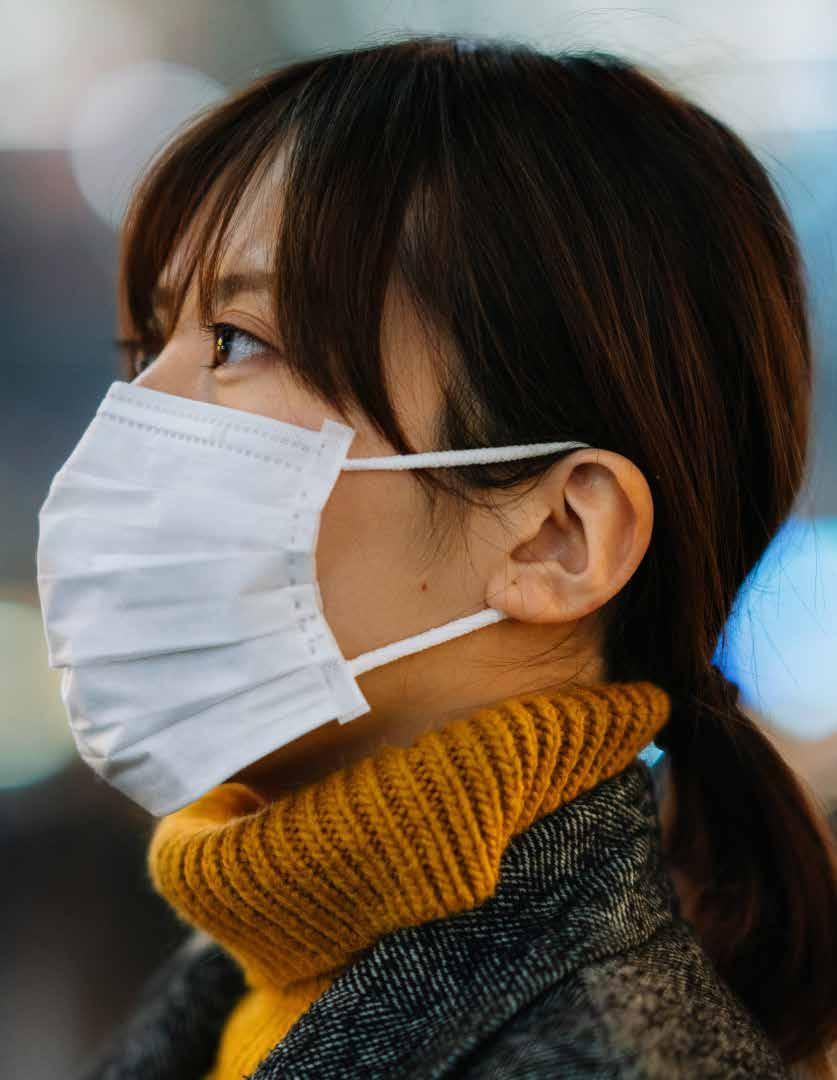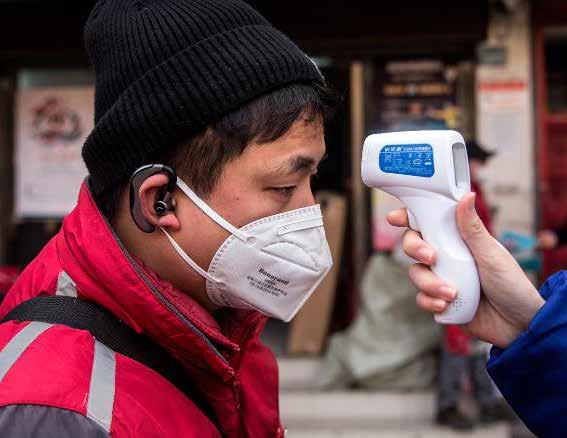
6 minute read
Special feature: The Viral Challenge
THE VIRAL CHALLENGE
Global tourism market is faced with yet another disease outbreak that threatens to unsettle business plans for the coming few years
Advertisement

Since its outbreak in China’s Wuhan, the novel Coronavirus has been spreading rapidly, killing hundreds and raising a global health crisis that is much bigger than that caused by the Severe Acute Respiratory Syndrome (SARS).
Named Covid-19 by the World Health Organisation (WHO), the virus has claimed more than 2700 lives and infected over 80,000 people globally during the past two months with a case-fatality ratio of two per cent. The SARS outbreak in 2002 had snuffed out only 774 lives across an eight month period in comparison.

precautionary measure. Nearly 4,000 people were expected to attend the conference. Similarly, global chip-maker Intel decided to postpone its “Intel Labs Day’ conference scheduled for March 12-13 “due to the coronavirus/COVID-19 impact on the ecosystem".

Hoteliers, tour operators and other tourism players have been plunged into uncertainty. At least over a dozen countries have restricted or banned flights to and fro China. The Indian Ministry of Finance had convened an urgent meeting of all key stakeholders on February 18 to assess the impact of the Coronavirus outbreak on the country’s trade and ponder ways to tide over the crisis.
The virus is substantially a more potent threat to global fortunes this time as China, the epicentre, has leapfrogged to the status of a principal presence in the global economy over the past 18 years. The Asian giant has become the world’s largest market for outbound travel, their number ballooning from 4.5 million travellers in 2000 to 150 million in 2018. As per the figures provided by the UNWTO, the country is also the world’s largest spender, accounting for 16 per cent of USD 1.7 trillion international tourism spend globally.

The absence of Chinese travellers in major tourist cities, due to Coronavirus epidemic, is weighing on the global tourism industry like never before and has raised alarm bells ringing in neighbouring countries like India.

“The severity of the crisis is much bigger than what it appears now. The travel and tour industry in a small South Indian State like Kerala had suffered a loss of around Rs 200 to 350 crore following the Nipah outbreak,” says E.M. Najeeb, Vice-President, Indian Association of Tour Operators.
“Many national and international events scheduled for the coming months have been cancelled in the wake of the virus outbreak. Viewed on a national scale, the tourism sector has already suffered a loss of over Rs 500 crore due to cancellation of inbound packages. The outbound business loss (towards South East Asia and the Far East) could be around 30 to 40 per cent, which would translate to over Rs. 1,000 crore,” he says.
Facebook has cancelled its global market conference, which was scheduled to be held in March at San Francisco’s Moscone Center, as a “On the impact of #CoronavirusOutbreak and any disruptions to #MakeinIndia or to Indian export/ import @FinMinIndia is scheduled to hold a meeting on Tuesday 18 Feb. Stakeholders welcome. If unable to attend please email your inputs at fmo@nic.in,” Union Finance Minister Nirmala Sitharaman had tweeted.
The recurring virus challenge – SARS, H1N1, Ebola, swine flu, is slowly bringing about a change in the medical tourism concepts, especially the preparedness of host nations. Once all major virus-induced and bacterial infections were brought under the control, healthcare within countries
Medical tourism as a distinct branch of the tourism industry emerged when people began traveling great distances for such treatment. However, today the world is faced with a new ‘viral challenge’. Cross-border travel for treatment purposes can become complicated overnight with a virus outbreak in some corner of the world, many of them causing zoonotic infections.
Patients assess the potential of the healthcare system at a given destination on the basis of its readiness to meet a sudden health emergencies. It is up to governments to overhaul their health protocols to meet the new viral challenges and the resultant emergencies. The South Indian State of Kerala, a major medical tourism destination, had moved with alacrity following the Nipah outbreak in 2018.
If it was panic all around at the time of the Nipah outbreak, there was discernible confidence among the health authorities and the general public when three students who had returned to the State from Wuhan tested positive for Covid-19. The State, known for its robust public healthcare system, had channelized all resources possible and managed to push back the new virus strain without straining too much.
“Just as in the case of Nipah, Kerala has won the battle against Corona virus,” State Finance Minister Dr. T.M. Thomas Isaac tweeted, announcing the achievement to the world. “..All the 3 patients identified have been confirmed by Central authorities to have fully recovered. No case of secondary spread. Number under quarantine observation drastically coming down. Congrats Health Dept,” Isaac tweeted. That is a feather that nations and provinces across the globe should covet—in the interest of the health of their peoples and the growth of their tourism industries.
VIRUS AND THE FEAR OF FLYING

The number of flyers has dropped drastically since the deadly novel Coronavirus began spreading across borders in December. One of the most frequent queries popping up in the minds of travellers is over the threat of infection once inside an aircraft.
Is wearing a mask enough to protect one from the virus? The question is yet to be answered in full by experts. While COVID-19 can get transmitted from one person to another through air, whether the virus can spread through aerosol (suspension of liquid droplets) is yet to be ascertained by scientists. When an infected person coughs or sneezes and the resultant saliva, mucus or other bodily fluids fall on you, you can become infected as well.
The World Health Organisation (WHO) has advised passengers to avoid close contact with people suffering from fever or cough. However, is it possible to avoid contact with other passengers during air travel? WHO itself defines contact with an infected person as being seated within two rows of one another. If an infected person near you in the aircraft sneezes, there’s nothing much you can do about it.
Further, people fear that the tray tables, foot rests, overhead bins, toilets in aircraft could all be sources of infection as it is not clear how long the virus strain can sustain itself outside the human body.
The ideal thing would be to wear masks and disinfect the aircraft after each trip. But is that enough? “It’s a big question to answer satisfactorily. It’s true that screenings for COVID-19 are being done at most of the major airports. Also we’re taking care to clean and disinfect aircraft after every service, but whether it would ensure complete prevention of infection in case of people travelling with infected person/ persons is very difficult to answer,” said Aby George, Head of Airport Services, Air India Express.
Airline officials, however, recommend every passenger to follow all possible precautionary measures. That includes washing hands after touching any surface with soap or an alcohol-based hand sanitizer . One shouldn’t touch one's face and should avoid contact with coughing passengers by whatever means possible.










